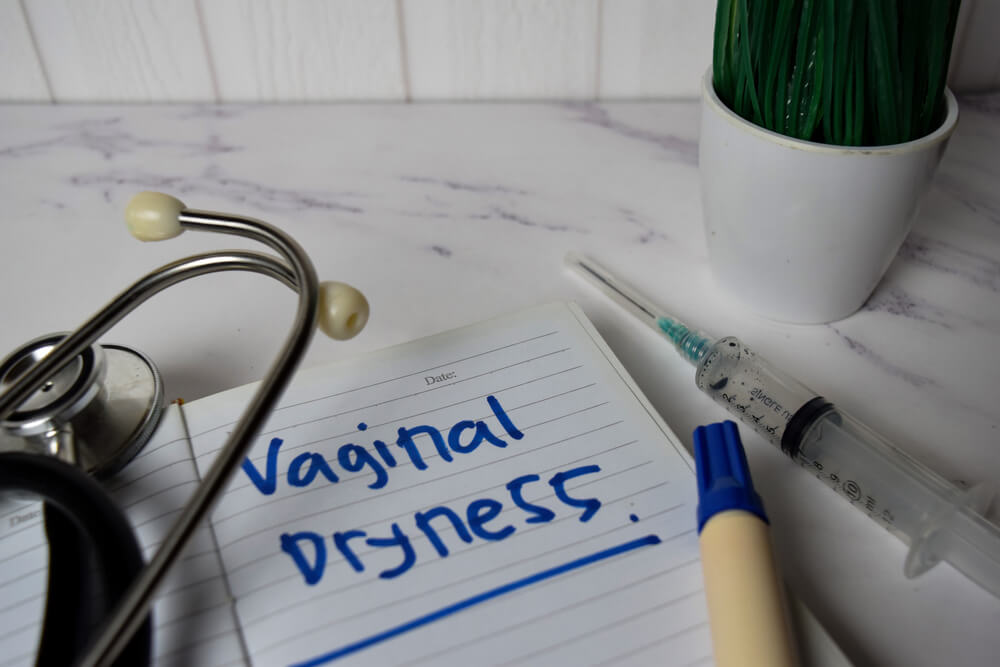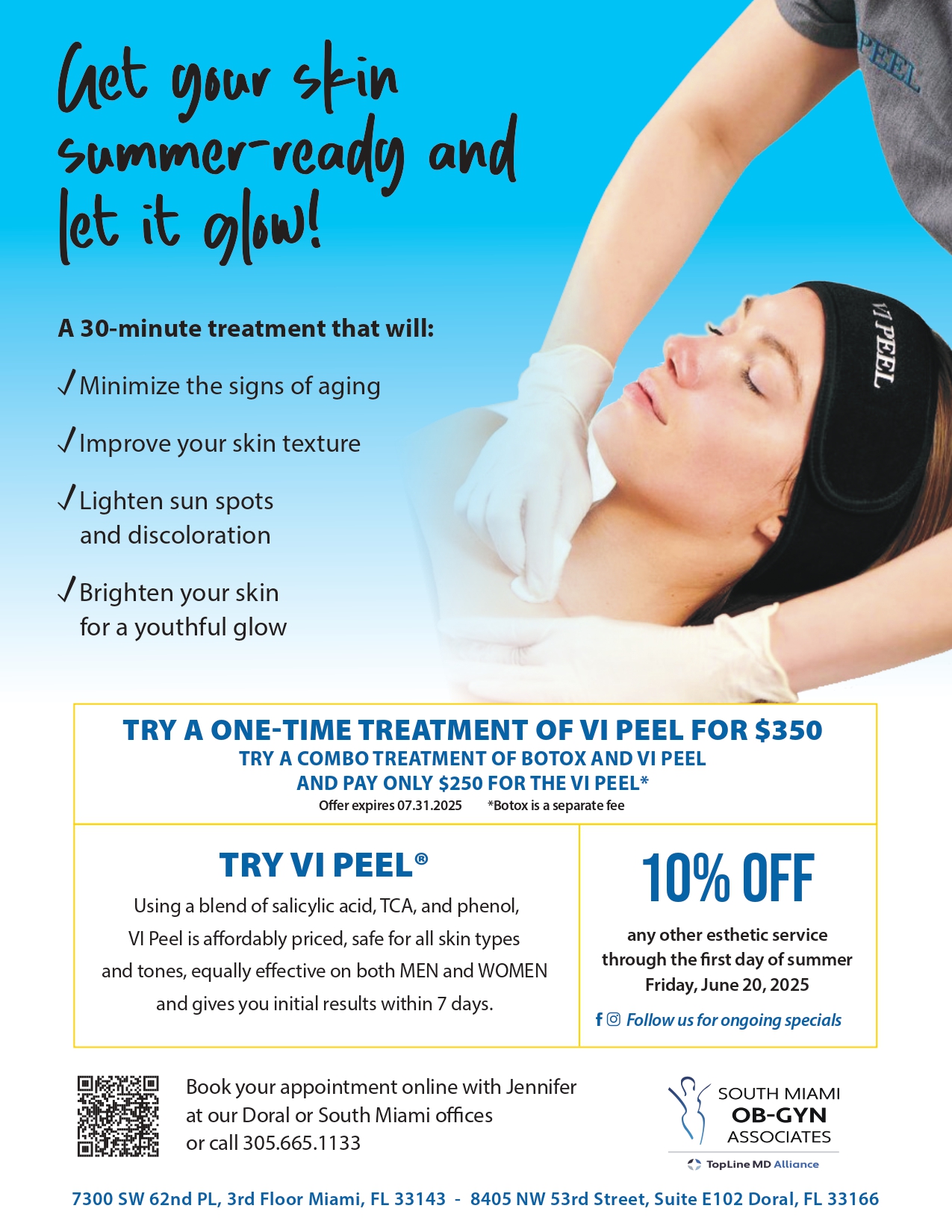Vaginal dryness is a common issue experienced by many women during at least some point in their lives. While commonly connected to menopause, it can have multiple causes, ranging from hormonal and emotional to a side effect of medications.
The first and most crucial step in treating this issue is finding out what caused it. Vaginal dryness treatment might be as simple as lowering stress or as complex as full-blown hormone therapy.
The Vagina and Moisture
The moisture coating the walls of the vagina has several important functions. It allows sperm to survive and travel within the vagina, thanks to the alkaline environment it creates. Furthermore, this thin layer of moisture serves as a natural lubricant for the vaginal walls, making sexual intercourse easier and more enjoyable.
Due to a variety of reasons, vaginal walls can begin to thin over time. This can then lead to fewer cells secreting moisture, leading to vaginal dryness, and a general feeling of having dry skin on the vagina.
Symptoms and Effects of Vaginal Dryness
Vaginal dryness is most often characterized by discomfort in not only the vaginal region, but the pelvic region as well. However, it can also lead to:
- Persistent urinary tract infections
- Soreness
- Dry skin on the vagina
- Burning
- Pain during sexual intercourse (and loss of interest in said intercourse)
- Vaginal itching after sex
- Itching or stinging
- Light bleeding after intercourse
Furthermore, many women feel needlessly embarrassed by these issues. This often prevents them from talking about these issues with their partner or their physician.
Vaginal Dryness and the Vulva
Keep in mind that dryness isn’t only contained within the vaginal canal. The lack of natural moisture caused by a lack of estrogen can also irritate the vulva.
When Is It Serious

Most often, vaginal dryness is not a severe issue. However, you will need medical treatment immediately if it is ever accompanied by severe bleeding or by issues like ovarian pain after menopause.
Furthermore, if regular symptoms and discomfort last for more than a couple of days, you should seek treatment. Dry skin on the vagina can lead to cracks and sores, especially if you ignore the primary symptoms for longer periods of time.
Vaginal Dryness and Estrogen
Estrogen is a hormone that is produced by the ovaries. It plays a role in many aspects of female health, including reproduction, hair growth, and bone health.
Estrogen levels decline as women approach menopause, which can lead to symptoms such as hot flashes, night sweats, and vaginal dryness. There are many treatment options for menopausal symptoms, including hormone therapy and lifestyle changes.
It is the main cause of vaginal dryness, most often as a side effect of menopause.
Veginal Dryness Causes
Besides falling estrogen levels, there are other conditions that can lead to lowered estrogen production, which then leads to vaginal dryness. These can include:
- Depression
- Prolonged periods of intense stress
- Childbirth
- Intense exercise
- Ovarian pain after menopause (a marker for things like cysts and ovarian cancer)
- Hormone therapy, radiation directed towards the pelvis (various cancer treatments)
- Removal of ovaries
- Douching
- Sjogren syndrome (an auto-immune system disorder)
- Smoking
- Breastfeeding
- Side Effects of specific medications (specifically anti-estrogen medication)
- Poor reaction to certain creams or lotions
- Birth control pills
- Diabetes
How Is Vaginal Dryness Diagnosed
Your doctor will check your medical history and ask you about any symptoms you might be experiencing and any medication you might be taking. They might also do a blood test and check your hormone levels.
A physical exam might also be performed. The doctor will check your vaginal walls for lacerations and the thinning of tissue before prescribing any vaginal dryness treatment. They might ask you personal questions, like whether you felt any ovarian pain after menopause sat in, or some questions regarding your sex life, like whether there is any pain or vaginal itching after sex.
Preventing Vaginal Dryness
Note that vaginal dryness is a natural part of life that comes with age and that while it can’t be prevented, it can be treated.
However, there are several things you can do to prevent vaginal dryness before it (re)occurs too soon.
The most important prevention tip is not using products that irritate the vagina, like douches, or powerfully scented products. In general, avoid using chemical-heavy lotions and soaps near the vaginal area.
There is a chemical called nonoxynol-9 found in some condom brands, which causes dryness and dry sex.
Vaginal Dryness and Sex
Vaginal dryness can make sexual intercourse uncomfortable and painful. You can also expect vaginal itching after sex. And while the cause might be hormonal, there are two causes that are specific to sex:
- Anxiety
- Lack of/Low arousal
Regular vaginal lubrication and moisture can become much weaker due to feelings of anxiety during intercourse, leading to dry sex. These feelings can hinder arousal, leading to dryness. The source of this anxiety might be connected to either the act itself, the woman’s partner, or certain external factors.
A lack of arousal might either be a sign of low libido, or the person’s lack of sexual interest in their partner, or in sex in general.
Vaginal Dryness Treatment
One method of treatment includes hormone therapy. However, there are also estrogen creams, tablets, as well as vaginal rings. These can all be inserted into the vagina, either a few times a week, or kept for 90 days.
Unlike hormone therapy, the rings, creams, and tablets give out much lower estrogen levels than typical hormone therapy (thus having fewer risks).
However, properly treating vaginal dryness and its causes is best preceded by a consultation with a doctor. A licensed professional can give you a concrete treatment plan, without saddling you with too many side effects. We suggest you contact our own Dr. Matinez obgyn for a consultation.
Votiva treatment is another option. It’s a non-invasive treatment that rejuvenates the labia and the vagina tissue. It uses radio-frequency energy to stimulate collagen growth within and around the vagina painlessly. This leads to greater sensitivity and increased lubrication.
What Helps With Vaginal Dryness?

In certain cases, vaginal dryness cannot be treated completely. However, no matter the cause, certain symptoms can be alleviated.
One option is using lubricants during intercourse, avoiding dry sex. They can take on the original role vaginal moisture has during intercourse, reducing friction. We recommend avoiding oil-based lubricants since they can cause more irritation and even damage latex condoms. The same goes for petroleum jelly and mineral oil. Water or silicone-based lubricants are the most effective.
External and internal vaginal moisturizers can help provide moisture both around and within the vagina.
Both lubricants and moisturizers can lower the odds of you getting a UTI due to their changes to your vagina’s pH levels. Remember that the lubricants need to be for vaginal use, without artificial coloring, perfumes, or herbal extracts.
Conclusion
While rarely serious, vaginal dryness is an uncomfortable and unpleasant issue. Lowered estrogen levels most often cause it, it becomes a regular part of life as women age. It can be treated easily with lube and vaginal moisturizer However, if it occurs too often and is too persistent, some other (treatable) issue might be causing it.
Is vaginal dryness a common occurrence? Have you tried any of the treatment methods above? Then please share your thoughts and concerns with us once you schedule an appointment at (305) 665-1133.




